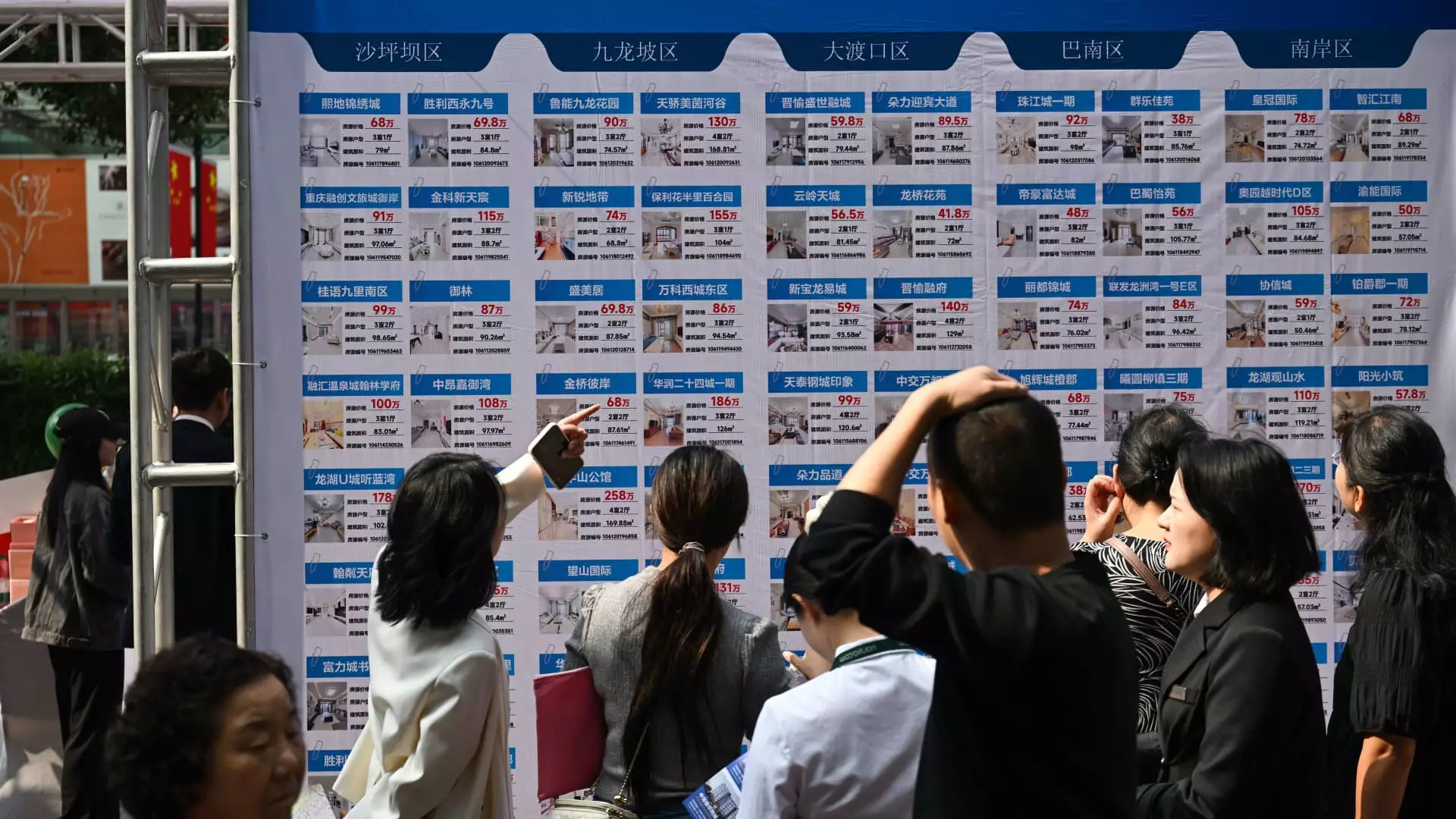In the face of a challenging Chinese real estate landscape, KE Holdings, also known as Beike, has emerged as a focal point for investors seeking refuge in an otherwise tumultuous market. Listed under the ticker “BEKE” in the United States and trading in Hong Kong, KE Holdings operates the widely popular Lianjia platform, which caters to apartment seekers in major urban centers. Recent market performance indicates a significant rebound, with BEKE shares soaring by 38% in 2024, starkly contrasting the modest resurgence of the broader Chinese property stocks which have only seen a 3% increase this year. This stark difference has drawn attention from analysts who see potential short-term gains and long-term value in KE Holdings’ strategic approach.
As China’s real estate sector grapples with a notable downturn, government actions have played a crucial role in shaping the market’s trajectory. In late September, President Xi Jinping convened a meeting that set forth plans to revitalize the stuttering real estate market. With commitments to halt the decline and stimulate recovery, these government initiatives have already begun to manifest in the market. The People’s Bank of China has announced rate cuts for existing mortgage holders, contributing to a slightly more optimistic environment for home transactions.
Moreover, in a proactive move, four major cities, including the capital, Beijing, have eased restrictions on home purchases. This shift came just before a weeklong holiday, during which data showed a resurgence in real estate transactions compared to the previous year. However, while these indicators suggest recovery, they must be viewed with caution. The nature of the real estate market has shifted dramatically, where property developers now confront an increasing inventory of unsold older homes and a demographic that is aging, complicating the recovery process.
Analysts’ Perspectives
Analysts from Jefferies and Bank of America have offered varying predictions about the future of KE Holdings. Jefferies remains bullish, projecting that the platform will benefit significantly from government measures aimed at supporting real estate transactions, particularly in the segment of existing and new homes. Their report rates BEKE as a “buy,” anticipating an upside of approximately 34% from its current price. Conversely, Richard Tang from Julius Baer offers a more tempered perspective, indicating that while some improvement is observable, the path to recovery for the Chinese property market may be prolonged.
Bank of America analysts express similar reservations, suggesting that home prices could experience further declines before stabilizing. Their analysis points to a general lack of fundamental shifts in buyer expectations, reflecting an ongoing skepticism in the market. This caution is underscored by the connections between the expert they surveyed and KE Holdings, highlighting the company’s extensive market presence while simultaneously acknowledging the inherent risks of sustained growth.
Tapping into New Opportunities
Despite the challenges, KE Holdings seems poised to innovate and adapt to the evolving real estate landscape. The company has strategically diversified its offerings, tapping into renovation services, home rentals, and connections with contractors, thereby widening its revenue streams. This pivot toward ancillary services can potentially buffer the impact of sluggish home sales and also meet emerging consumer needs.
Goldman Sachs analysts have taken notice of the company’s agile maneuvering and its significant market share in various brokerage channels. They believe that KE Holdings stands to gain from the shifts in policy, particularly within tier-1 cities, which contribute a substantial percentage of the company’s gross transaction volume. Moreover, the impending eligibility of KE’s Hong Kong shares for the connect program could facilitate access for mainland investors, further driving demand.
Financially, KE Holdings maintains a robust profile, boasting a net cash reserve of approximately $10.5 billion as of mid-2024. This financial cushion allows the company to pursue share buybacks and maintain a return yield for shareholders. Analysts from Goldman Sachs argue that these factors, coupled with the company’s relatively attractive valuation in the context of its anticipated profit growth, position KE Holdings for potential upside in a recovering market.
While the landscape of China’s real estate market remains fraught with uncertainty, KE Holdings emerges as a resilient player. Equipped with a strong balance sheet and innovative strategies, the company is well-positioned to navigate the complexities of an ever-evolving market. As investors weigh the long-term prospects against current market realities, KE Holdings’ adaptability may just be the game-changer needed to flourish amid adversity.


Leave a Reply